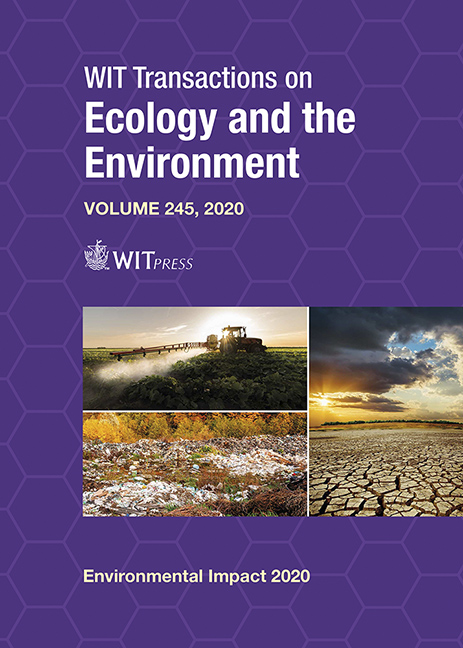FUTURE IMPACT OF CLIMATE CHANGE ON BUILDINGS’ ENERGY CONSUMPTION IN SUBTROPICAL CLIMATES
Price
Free (open access)
Transaction
Volume
245
Pages
13
Page Range
121 - 133
Published
2020
Paper DOI
10.2495/EID200121
Copyright
WIT Press
Author(s)
MARTA VIDERAS, SERGIO G. MELGAR, ANTONIO S. CORDERO, JOSÉ MANUEL ANDÚJAR MÁRQUEZ
Abstract
The growing concern about global climate change extends to different professional sectors. In the building industry, the energy consumption of buildings has become a vulnerable factor due to the direct relationship between the outside temperature and the energy needed to cool and heat the internal space. This paper aims to estimate the influence of time evolution and different climate-change scenarios on the energy behaviour of a Minimum Energy Building (MEB) dwelling in a subtropical climate located in Malaga, southern Spain. The future building energy consumption has been predicted using dynamic building energy simulation software tools. To quantify the impact, an online, open access software has been used to calculate the future weather data through a general circulation model (GCM) and a mathematical method of transformation. Projected climate data were obtained in three time periods 2020s, 2050s and 2080s), based on four emission scenarios defined by the Intergovernmental Panel on Climate Change (IPCC): B1, B2, A2, A1F1. The different energy simulations carried on show clearly future trends of growth in total building energy consumption and how actual building designers could be underestimating the problem of cooling in the subtropical zone. Electricity demand for heating is expected to decrease almost completely, while electricity demand for cooling increases considerably. The changes predicted are significant in all scenarios and periods, concluding an increase of between 48–83% in total energy consumption during the building life cycle.
Keywords
global climate change, building energy simulation, building energy consumption, future weather data files, green-house gas emission, energy impacts, EnergyPlus, uhuMEB





